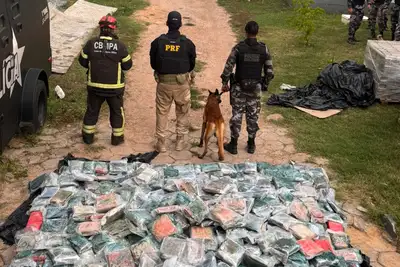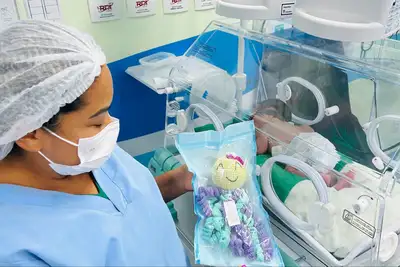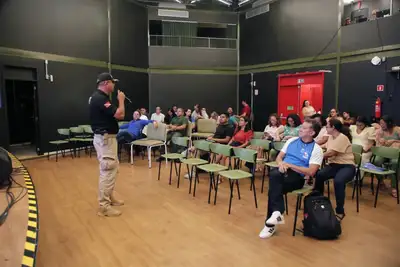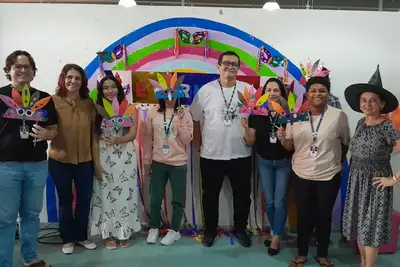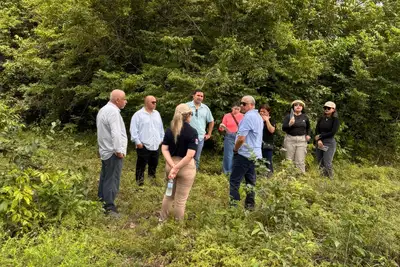Project ‘Green Roof’ transforms school in Belém into a space for environmental awareness
Sustainable project at the Bento XV State School in Belém promotes hands-on learning about the environment with support from Prodep
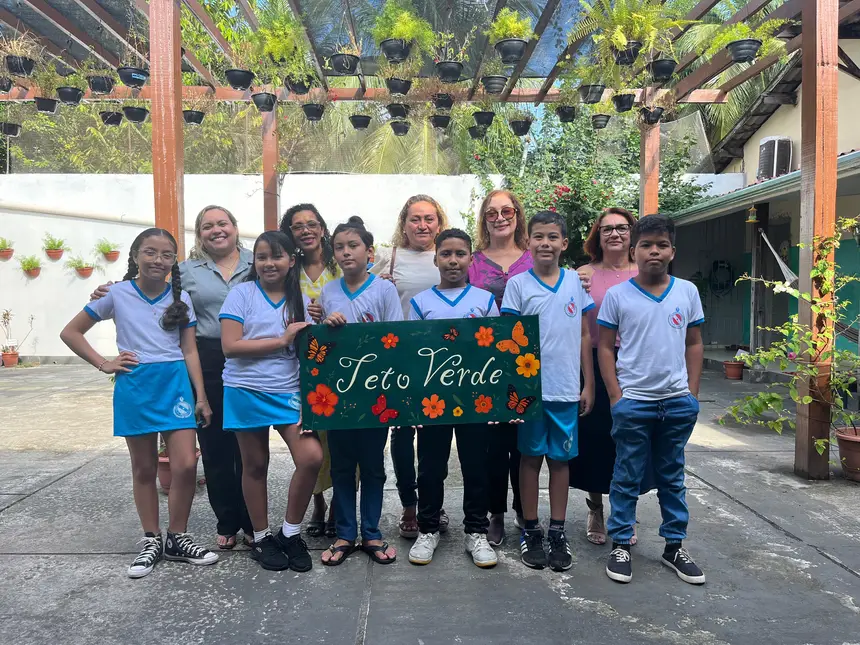
Awakening care for the environment from an early age is more than teaching; it is planting a seed of responsibility that grows alongside children. At the Bento XV State School in Belém, this idea has come to life with the support of the Pará School Money Program (Prodep), which made the creation of the ‘Green Roof’ Project possible. The initiative combines environmental education, sustainable practices, and, above all, the enthusiasm of the students themselves to transform the school into a better place for everyone.
The project was born with a clear purpose: to improve the environmental quality of the school space, making it cooler, more pleasant, and welcoming. Thus, the pergola emerged, a charming structure covered with climbing plants typical of the region that, in addition to beautifying the environment, help to reduce heat in outdoor areas. The irrigation, done ecologically, values the conscious use of water and reinforces the commitment to sustainability.
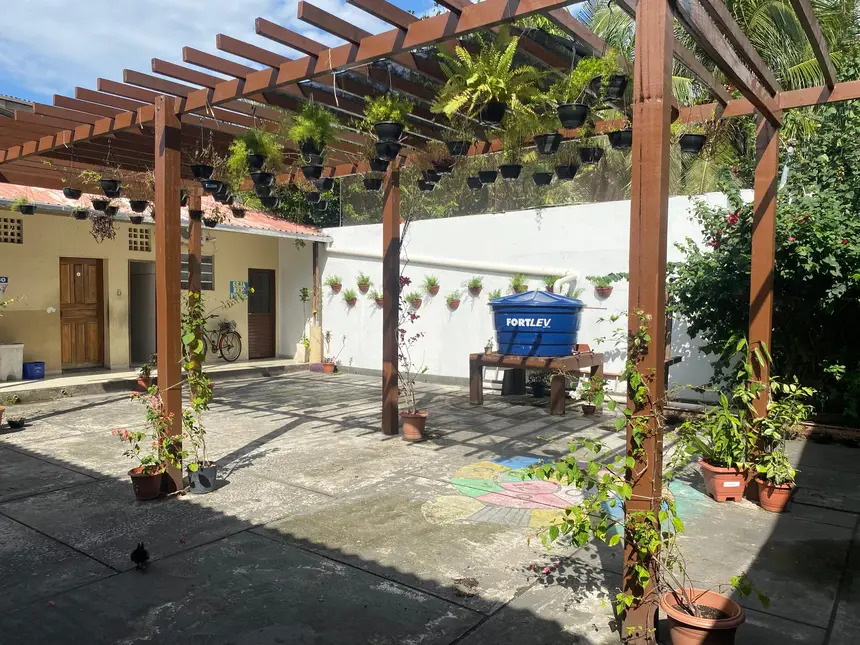
But the ‘Green Roof’ goes beyond plants and shade. It also encourages new ways to care for nature in daily life. A good example is the practice of composting, where the students themselves learn to transform organic waste from the school into natural fertilizer. Thus, they not only reduce waste but also understand, in practice, how everything in nature can become useful again, with respect and responsibility.
“The benefits of the project are already visible, with a milder climate in the afternoon, allowing children to play more comfortably. The expectation is to cover the entire roof with climbing plants, further improving the school environment. And all of this was thanks to the Prodep resources, which gave us autonomy. Government support came to qualify the space and meet needs that were previously impossible due to lack of funds,” says Tereza Corrêa, the unit's director.
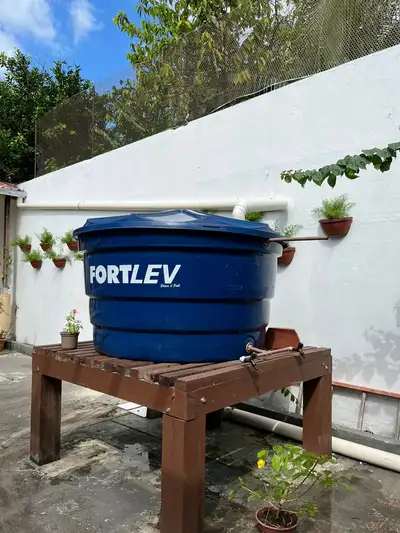
The subprogram Environment, Sustainability, and Climate, part of the Pará School Money Program (Prodep), has been an important tool for transformation in the state's schools. By ensuring more autonomy for school management and the School Council, the initiative allows each school community to make decisions based on its own reality, investing where it truly makes sense for students, teachers, and the daily life of the school.
Much more than resources for small works or maintenance, the program also opens pathways for the purchase of pedagogical and technological materials, and, above all, for strengthening educational practices related to the environment. With a focus on sustainability and climate change, Prodep integrates these themes into the school curriculum through Environmental Education, promoting experiences that awaken in students a sense of responsibility and care for the planet.
In 2023, the school unit received a transfer of R$ 51,287.41. In the following year, this amount increased to R$ 78,516.51.
“It got much better here. Before, we were roasting, it felt like a barbecue, since it was very hot, everyone was sweating; now it’s prettier and cooler. I really like Environmental Education classes because we can talk about the environment and even think about solutions to the world's problems. And when we come to this space, we learn better,” says Paloma Lobo, a 5th-grade student.
Environmental Education - Pará stood out as a pioneer by ensuring the inclusion of a mandatory curricular component focused on sustainability in Brazilian public schools. Through Seduc, the Policy for Education for the Environment, Sustainability, and Climate was created in 2023. Since then, with the introduction of the Environmental Education discipline, public educational institutions have been promoting projects and initiatives that encourage student protagonism and environmental conservation.
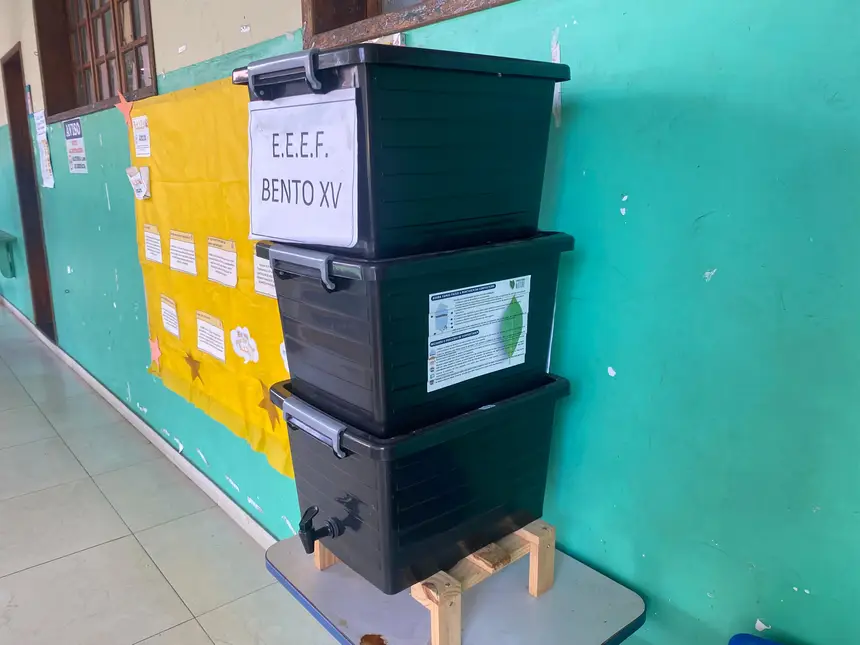
The Formal Education Policy for the Environment, Sustainability, and Climate, established by Law No. 9,881, implemented, starting in the first semester of 2024, the curricular component of Environmental Education at all levels of education, covering both state network schools and, optionally, municipal units.
“Classes became more interesting with the new space. Before, we only worked with images and videos, but now, with students seeing everything in person, they feel more motivated, eager to learn more. I usually give the theory in the classroom and then take the students to practice so they can experience the content. The environment has also improved a lot; before it was just concrete, very hot. Now the air is more pleasant, and the students have already noticed this difference. This has reflected in their learning. They are more interested, want to go to the yard, get to know the environment, and have even started to reproduce at home what they learn here, like planting and taking care of small gardens. It is very important that this learning starts early because they begin to understand better why studying the environment is essential, and with projects and encouragement, they learn more and apply this knowledge in their lives,” highlights Mayana Castro, Environmental Education teacher.
The initiative went beyond the classroom and transformed into a collective project that involved teachers and students in the search for sustainable solutions for the school environment. The proposal arose from listening to the children and observing the conditions of the external space, marked by excessive heat and the absence of shade.
“The project started with 4th-grade students in September 2024, together with teacher Mônica Ferreira. The suggestion to plant a mango tree arose, but we realized that this would be difficult. So, we researched other alternatives and came up with the idea of the pergola, something new for many children. We visited urban spaces with pergolas, and in practical classes, the children understood the concept better, and we started the construction. Since the area is very hot, we believe that with the pergola, the space will become more pleasant and conducive to play, supporting the integral development of children,” said Rosangela Cardoso, project creator.
With this, the school ceases to be just a learning space and becomes a true point of social transformation, where sustainability and education walk hand in hand.



